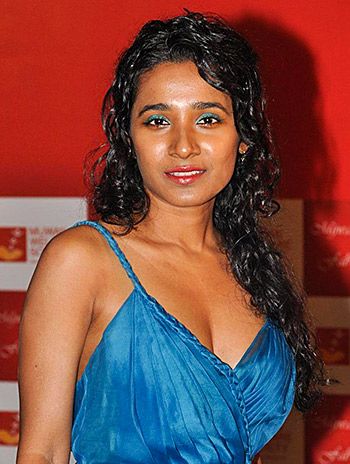 'I wish there was a little chaos there and I wish there was a little discipline here.'
'I wish there was a little chaos there and I wish there was a little discipline here.'
Lion actress Tannishtha Chatterjee on Bollywood and Hollywood.
Tannishtha Chatterjee is a part of the hugely talented star cast of the Oscar-nominated film Lion -- Deepti Naval, Nawazuddin Siddique and Nicole Kidman.
Child actor Sunny Pawar is one of the film's highlights while Dev Patel, who plays him grown up, has won an Oscar nomination in the Best Supporting Actor category.
Tannishtha tells Rediff.com's Patcy N why she *had* to be a part of the film.
Do you play a fictional character in Lion?
It is not exactly fictional. The real person was an old man. Garth (Davis, director) wanted to work with certain actors, so it got converted to a female character.
Garth had seen a lot of my work. When I was shooting for UNIndian in Australia, he e-mailed me, saying that Nawaz (Nawazuddin Siddiqui) and I were two of his favourite actors from India and I had to work with him.
I thought it was incredible.
He said he had written a role which no one has ever offered me.
He asked me to read the script and then decide if I wanted to accept it or not.
I read it and agreed that no one had ever cast me in something like that.
I thought it would be surprising for people, who have seen my work, to see me like this.
We worked towards the process because my character meets a little kid at some point.
There is an unfamiliarity and I need to be disconnected from him.
That disconnect needed to leave an expression on the kid's face. So if we were too familiar behind the camera, it won't come.
That process was difficult because he was so sweet and adorable!
It was not natural not to connect with him. I had to hold myself back to do it.
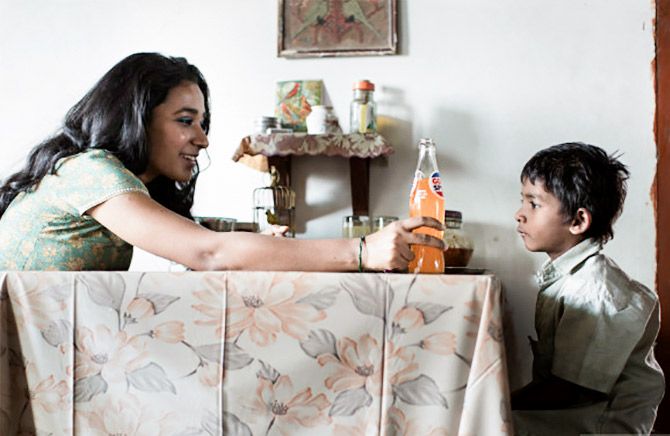
Which films of yours had Garth watched?
He had seen my international work -- Siddharth, Brick Lane, Monsoon Shootout, Bombay Summer...
He also seen Dekh Indian Circus, which had Nawaz and me. He had even seen Nawaz's Gangs of Wasseypur.
What was it like working with Garth Davis?
It's a high when somebody from a different culture says he has seen your work and offers you a role.
He is a fabulous director. I have worked with a lot of directors who are technically brilliant like Garth. He comes from an advertising background.
We have this attitude that people who make ad films have no idea about acting, but Garth surprises you. That's my greatest experience with him.
Even though my role is small, it stays with you.
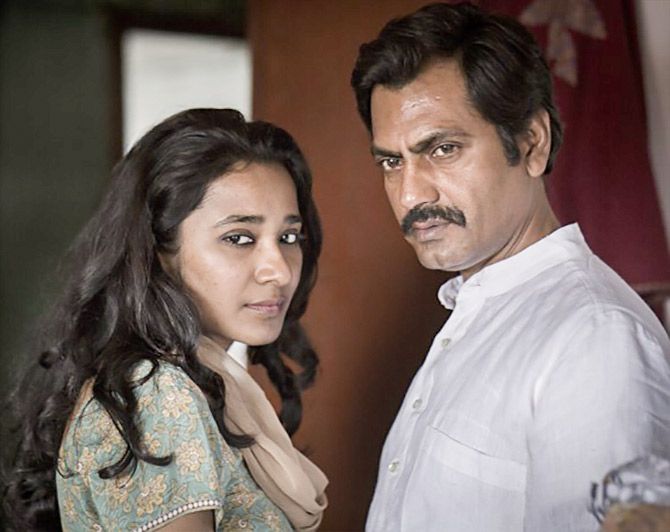
Tell us about the shooting in Kolkata.
I was born in Pune. Then, we shifted abroad and after that, Delhi.
I used to visit Kolkata every year till my grandmother was alive.
My connection to Bengal is very nostalgic. It's all about holidays in her beautiful villa by the riverside in the suburbs of Barrackpore (in north Kolkata).
Shooting in Kolkata is always fun.
Nawaz and I would go to Bhojohori Manna (a popular restaurant) and eat!
We wouldn't have the food on the sets or the five-star hotel where we were put up.
We would go there and have authentic Bengali food every day.
Had you read the book A Long Way Home before Lion, based on it, was offered to you?
No. I read the book after I had read the screenplay.
It's a fantastic story, almost unbelievable that it could be real. But it is.
A lot of times, when books get adapted to films, they are not as expressive. Did you have any doubts?
But I have worked a lot on films which came out of books, like Brick Lane and Anna Karenina.
Many films in the recent past have been from books like Slumdog Millionaire and Life of Pi.
There are two ways to look at it -- one is that you have strong material from the book.
Second, when it is a great story, but not a literary piece -- like Saroo's story -- that great story is the best thing for a film.
Saroo became a writer after he wrote his life story. He is not Arundhati Roy who is a literary writer.
So I take the liberty to say that it was a risk, but the book works because it was a great heartfelt story of what he went through, the emotions and the realism of it.
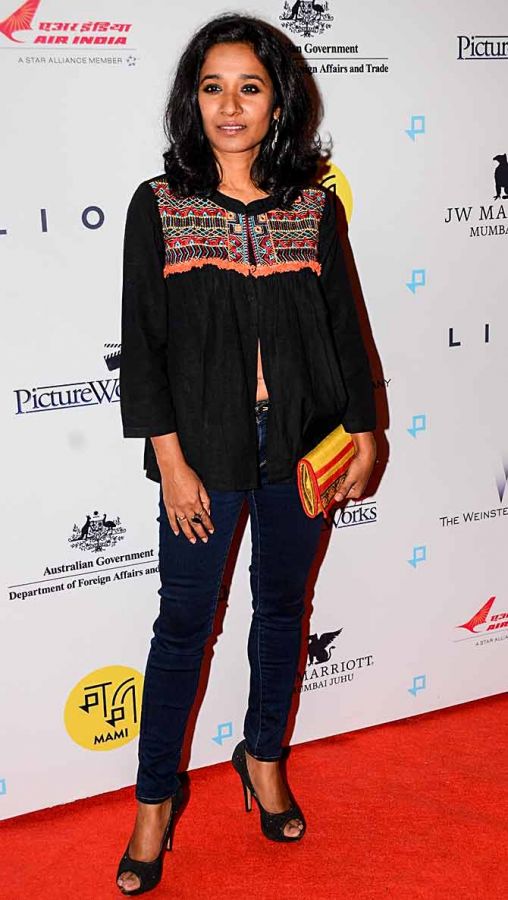
Most films set in India made in the West show India in poor light.
When they show poverty in Thailand, Vietnam, Bangladesh and India, their audiences feel they have a much better life than us and it makes them feel good about themselves. That psychology definitely works.
Having said that, when you visit India, the thing you see and strikes you most -- not in Delhi, because that is the capital, and it's so clean and beautiful -- but in Mumbai, is the poverty.
We don't see it because we travel by car and stay in good houses.
But look outside, there is so much poverty.
Look at the drains. We are used to it, but the outsider sees it.
The villages are clean and poverty there is not depressing. But every time my maid does not come, I go to the Versova jetty to see her and I puke!
It is so horrible!
So they show the reality. In fact, Indians get green cards and don't want to come back.
Have you been to Deonar (which houses the largest dumping ground in Mumbai)?
Go and live there for two days, meet the people who are 30 years old and see how they look.
They live in that toxic atmosphere, which is the stark reality of most of our cities.
Their lives will never improve because they are uneducated.
How different is the way Hollywood works from Bollywood?
Culturally, we are different.
We are a beautifully chaotic people, which works for us.
They want precision; they are more organised.
I wish there was a little chaos there and I wish there was a little discipline here.
As an artist, sometimes, I get exasperated about so many rules that they have -- they don't finish the scene if it is pack-up time.
And here, we just work and work, there is no pack-up.
An unfortunate incident happened when you appeared on an episode of Comedy Nights Bachao Taaza.
It wasn't an unfortunate incident about me.
It's unfortunate for our culture to have things like that, to have popular shows propagate regressive prejudices -- that show had an incredibly offensive rape joke after which I walked out. But they didn't get it.
It's unfortunate that people, who have the power to communicate to so many people through a very popular show, don't even understand the meaning of comedy.
They don't understand what Roast is.
Roast is meant to insult power, not bully the minority.
You have to follow the rules.
If you don't know it, then I have to educate you in that.
It wasn't personal at all.
I made a point in a very friendly way.
They were so egotistic that they didn't even understand it, so they became defensive.








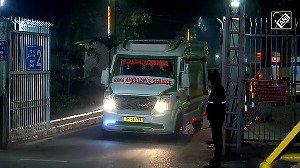
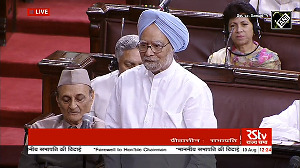
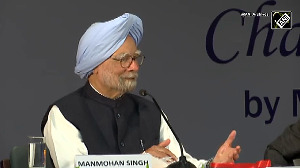
 © 2024 Rediff.com -
© 2024 Rediff.com -